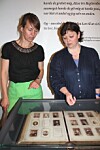
WEIGHT: 48 kg
Bust: 38
One HOUR:250$
Overnight: +80$
Services: For family couples, Massage, Games, Deep Throat, French Kissing
Not that the Chinese community particularly chose to flourish in these zones but history Thai ultra nationalism at times anti-Chinese, particularly between and as well as the singular method of operating in networks that structured their work cultivation and selling of rubber or their identity including religious identity forced them to do so. This is how historically Chinese immigants in Thailand have specialised in:.
Their techniques and singular networks were far more effective in purely economic terms than those of their rivals from other minorities. The arrival of the Chinese migrants was to be overseen by triads but they fell into decline and at the same time the shan tang philanthropic institutions made their appearance. The point of contact between the zones of Buddhist and those of Muslim civilisation in Asia, the growing sex industry, a prominent grey area, is also organised and managed by the Chinese, Thai, or Malay diasporas.

A rapid presentation of the Chinese in Thailand can be made. The Jawis are a minority, but in Yala and other Southern provinces, the Chinese constitute a minority when compared to the Jawis who in their turn are a minority in Thailand, probably even when compared to the total Sino-Thai population.
The majority of the population in the Betong district province of Yala is Jawi. However, the city of Betong itself and some of the neighbouring cantons are almost exclusively populated by the Chinese coming originally from Malaysia when rubber cultivation started.

The Teochiu are predominant particularly for historical reasons: after the defeat of Siam by Burma in , its grandeur was restored by Thaksin, son of a Teochiu tax collector adopted by a Siamese family, who then ascended the throne thus giving a decisive impetus to the immigration of the Teochiu group, coming from the north of the Guandong province, in China Chaozhou region. Another remarkable example is the existence at Pattani of the cult of Chao Mae Lim Khao Niao, a young woman in all probability Teo chiu, who committed suicide in the 17 th century to honour the memory of her ancestors, refusing to accept the conversion to Islam of her elder brother, Lim Tho Khiam, an engineer who had brought and offered to the Pattani Sultanate the technique of smelting metals for melting marine canons to which Pattani later owed its glory.




































